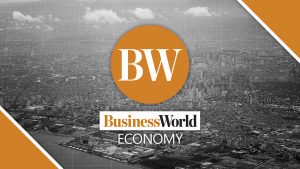Inflation in May was 5.4%, the highest level since December 2018. Last month, there was also talk of postponing the individual income tax cuts scheduled to start in 2023 under the Tax Reform for Acceleration and Inclusion (TRAIN) Act. These scenarios will certainly encourage taxpayers to think about how these events affect them. Many may already be worrying about their take-home pay as prices of goods and services rise.
As such, employers may wish to consider certain actions that could reduce the impact of taxes on their employees.
One of these actions is to revisit the non-taxable “de minimis benefits” that could be granted to employees. When considering an increase in employee benefits, companies may choose to grant de minimis benefits before increasing the basic salary rate.
De minimis benefits are non-taxable fringe benefits, a list of which is provided by current regulations. The fixed and monetary de minimis benefits include a P250 monthly medical cash allowance, a P2,000 monthly rice subsidy, a P300 monthly laundry allowance, and a P6,000 annual uniform and clothing allowance. These benefits are the equivalent of P36,600 every year, with the annual tax benefit ranging from P7,320 to P12,810 based on the current 20% minimum and 35% maximum income tax rate.
Other de minimis benefits include the annual monetized unused vacation leave credits not exceeding 10 days (for private employees), actual medical assistance not exceeding P10,000 per year, employee achievement awards in tangible personal property other than cash or gift certificates amounting to P10,000 per year, gifts made during Christmas and major anniversaries amounting to P5,000 per year, daily meal allowance not exceeding 25% of the basic minimum wage per region, and benefits received by an employee by virtue of a collective bargaining agreement and productivity incentive schemes with values not exceeding P10,000 per employee per year. The list of de minimis benefits can be found in Revenue Regulations (RR) No. 02-98, as amended by RR Nos. 05-11, 01-15, and 11-18.
Thus, if a company is considering giving salary increases, it may want to check first on the aforementioned de minimis benefits. These benefits might seem meager to some, but the consequent reduction of total compensation tax would undeniably increase the employee’s take-home pay and purchasing power.
Another action point to look into is transportation expense. In Metro Manila, some commuters may find that certain modes of transportation in use before the pandemic are still not available today. Instead of giving taxable fixed transportation allowances, companies may contemplate offering free shuttle services to employees required to resume office work.
To illustrate, suppose that an employee normally spends around P2,000 every month on transportation expenses. Thus, if a company gives a fixed transportation allowance equivalent to P2,000, the 20% withholding tax on compensation will reduce this to P1,600. The employee will have to cover the P400 deficiency.
If a company provides free shuttle services at 10 employees per shuttle and incurs a monthly shuttle rental expense of P20,000 per shuttle, the rent on the shuttle may be subjected to expanded withholding tax, which does not put the employee at risk of covering the deficiency. This makes a good case for considering transportation arrangements, with each individual employer having to weigh factors like where its employees live, or how much a service will cost.
Companies may also want to assess whether there are work-from-home (WFH) expenses solely related to the furtherance of the employer’s business that it can shoulder. Instead of giving fixed allowances to the employees to pay for such WFH expenses, which could be taxable, the company may consider directly coordinating, to the extent possible, with suppliers to pay for the WFH expenses. Thus, the corresponding documents will be issued in the name of the company. However, the problem in shouldering WFH expenses is to determine in particular the portion of the services that go to personal use as against business use, as in the case of internet usage. Perhaps the BIR can issue guidance on how to account for how much of a company-paid service may be classified as for business use, to help companies make the decision to pay for some employee WFH expenses.
Some companies might opt to just give additional taxable fixed allowances because of ease of implementation. Administrative effort expended in executing a plan is certainly something for a manager to ponder.
The rising prices of commodities are certainly a concern, and the possible postponement of income tax cuts may prove to be burdensome, unless the government can come up with some other measures. Nonetheless, with careful planning and consultation, employers can help diminish the tax burden on employees and increase their take-home pay.
Let’s Talk Tax is a weekly newspaper column of P&A Grant Thornton that aims to keep the public informed of various developments in taxation. This article is not intended to be a substitute for competent professional advice.
Ajeth A. Calabano is a senior in-charge of Tax Advisory & Compliance division of P&A Grant Thornton, the Philippine member firm of Grant Thornton International Ltd.
